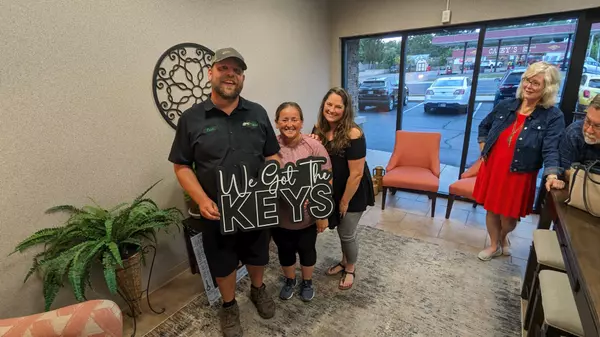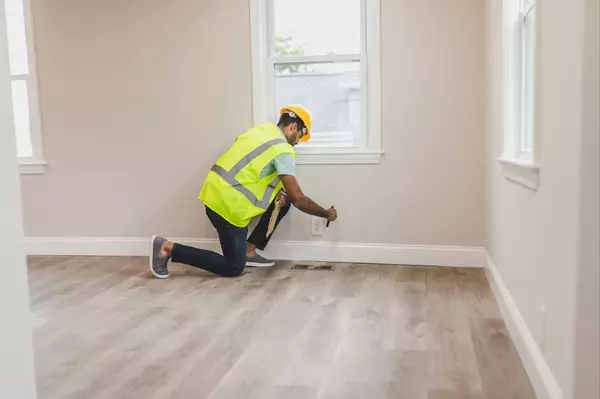
Your Realtors for Life: How We Can Continue to Help You After Closing
Congratulations on your new home! While the closing day marks the end of your buying journey, it’s just the beginning of our relationship. At Elite Icon Team, we’re committed to being your trusted Realtors for life, offering ongoing support and guidance whenever you need it. Ongoing Market Updates The real estate market is constantly changing, and understanding how those changes affect your property’s value is crucial. We offer personalized market updates to keep you informed about trends, comparable sales in your area, and shifts that could impact your investment. Property Valuation: Get regular updates on your home’s current market value. Neighborhood Trends: Stay informed about local market conditions and developments. Investment Opportunities: Receive insights on when it might be advantageous to buy, sell, or refinance. We believe knowledge is power, and we’re here to ensure you always have the latest data to make informed decisions about your home and future investments. Referrals for Local Services As homeowners, you may find yourself needing trusted professionals for various projects. From home improvement to landscaping, we can connect you with reliable, vetted service providers in your area. Our Trusted Network Includes: Contractors: From remodeling to repairs, we’ll recommend professionals who deliver quality work. Landscapers: Enhance your curb appeal with trusted local landscaping experts. Home Services: Plumbers, electricians, painters, and more—all with proven track records. Community Recommendations: Suggestions for local schools, restaurants, and activities to help you settle in. Think of us as your go-to resource for any homeowner needs, saving you time and stress when finding the right people for the job. Support for Future Transactions Your real estate journey doesn’t end after one transaction. Whether you’re considering upgrading, downsizing, investing, or refinancing, we’re here to guide you every step of the way. Buying a New Home: Let us help you find the perfect property when you’re ready to make a move. Selling Your Current Home: Our expertise ensures a smooth and profitable sale. Investment Opportunities: Explore rental properties, vacation homes, or other investments with our guidance. No matter your real estate goals, we’re ready to help you achieve them with the same dedication and professionalism you’ve come to expect. Building a Lasting Relationship We don’t see our clients as just transactions—we see you as part of our extended family. Our mission is to be your lifelong partner in real estate, always available to answer questions, offer advice, and celebrate milestones with you. Here’s how we stay connected: Regular Check-Ins: Periodic updates to see how you’re enjoying your home and address any needs. Exclusive Events: Invitations to client appreciation events and local gatherings. Constant Availability: Whether you need advice or just want to chat, we’re only a call or email away. Your Realtors for Life At Elite Icon Team, our commitment doesn’t end when the paperwork is signed. We’re here to support you through every stage of homeownership, providing the tools, knowledge, and resources you need to thrive in your home and beyond. If you ever have questions, need assistance, or are ready for your next real estate journey, don’t hesitate to reach out. We’re honored to be your Realtors for life and look forward to continuing this partnership for years to come. Let’s stay connected and make your real estate dreams a reality.

After the Sale: What to Expect as a New Homeowner
Congratulations on becoming a homeowner! While the closing process may be behind you, this new chapter brings its own set of responsibilities and opportunities. From settling into your new space to maintaining your property, here’s what you need to know about life after the sale. Settling In Moving into your new home is exciting, but there are several important tasks to handle as you get settled: 1. Set Up Utilities Contact utility providers for electricity, water, gas, internet, and trash collection. If you haven’t done so already, ensure all accounts are transferred to your name and services are active by move-in day. 2. Update Your Address Notify the postal service, your bank, employer, and other key contacts of your new address. Don’t forget subscriptions and memberships that rely on accurate delivery information. 3. Meet Your Neighbors Take time to introduce yourself to those living nearby. Building good relationships can create a sense of community and be helpful in emergencies. 4. Unpack Strategically Focus on essential items first, like kitchenware, toiletries, and bedding. Gradually work your way through less critical belongings to make the process less overwhelming. Home Maintenance Basics Owning a home means taking charge of its upkeep. Planning for regular maintenance can save you time and money in the long run. 1. Seasonal Maintenance Spring: Clean gutters, inspect your roof, and check your HVAC system. Summer: Maintain your lawn and check outdoor plumbing. Fall: Clean chimneys, service your furnace, and rake leaves. Winter: Insulate pipes, clear snow, and test smoke detectors. 2. Create a Maintenance Schedule Organize tasks by month to stay on top of inspections and repairs. Keep track of warranties and receipts for major appliances in case of future issues. 3. Budget for Repairs Set aside funds for unexpected repairs. Experts recommend saving 1-3% of your home's value annually for maintenance. Your Continued Support Even after the sale, I’m here to assist you with any questions or concerns. My goal is to ensure your transition to homeownership is as smooth as possible. Community Recommendations: Need a trusted plumber, electrician, or contractor? I can connect you with reliable professionals. Advice on Home Projects: Whether you're considering renovations or upgrades, I can provide insights to help maximize value. Market Updates: I’ll keep you informed about real estate trends that could impact your home’s value. Looking Ahead As a homeowner, you may eventually consider refinancing, upgrading to a larger property, or even investing in real estate. When that time comes, don’t hesitate to reach out for guidance. I’m happy to provide expert advice and support tailored to your needs. Enjoy this exciting phase of your journey, and know that you’re not alone—I’m here to help every step of the way.

Real Estate Closing - What Is It and What To Expect?
After weeks of searching, negotiating, and preparing, the finish line is finally in sight—closing day! This critical milestone signifies the completion of your home purchase and the start of your journey as a homeowner. To ensure everything goes smoothly, it’s essential to understand what happens on closing day, who’s involved, and what you need to bring. Let’s break it down step by step. Documents to Expect Closing day involves signing a stack of important documents, each playing a role in finalizing the transaction. Here are some key documents you can expect: The Deed: This document transfers ownership of the property from the seller to you. It will be filed with the county to make your ownership official. Loan Paperwork: If you’re financing your purchase, you’ll sign documents related to your mortgage, including the promissory note and the loan agreement. Closing Disclosure: This details the final terms of your loan, including the interest rate, monthly payments, and closing costs. You should have received this document at least three days before closing for review. Bill of Sale: This document lists any personal property items included in the sale, such as appliances or fixtures. Affidavits: These legal statements may confirm details such as your intent to occupy the property as your primary residence. Take your time reviewing each document, and don’t hesitate to ask questions if anything is unclear. Your realtor or attorney will be on hand to assist. Who’s Involved in Closing Closing day typically involves several key players, each with an essential role in the process: The Title Company Representative: Ensures the title is clear and facilitates the transfer of ownership. Your Lender: Provides the funds for your mortgage and ensures all loan-related paperwork is in order. Your Realtor: Acts as your advocate and guide, ensuring your interests are protected throughout the process. The Seller: In some cases, the seller may attend closing to finalize their part of the transaction. A Notary: Oversees the signing of legal documents to ensure validity. Each of these individuals works together to ensure a seamless closing experience, so you can focus on the excitement of becoming a homeowner. What to Bring and Prepare To avoid any last-minute hiccups, make sure you’re fully prepared for closing day. Here’s what you’ll need to bring: Government-Issued ID: A valid photo ID, such as a driver’s license or passport, is required for identity verification. Cashier’s Check or Proof of Wire Transfer: This covers your closing costs and any down payment required. Your lender or title company will provide the exact amount beforehand. A Copy of the Closing Disclosure: Bring the copy you reviewed prior to closing to cross-check details. Any Requested Documents: This might include proof of homeowners insurance or additional documentation your lender has requested. Double-check your list and confirm with your realtor or lender a day or two before closing to ensure nothing is overlooked. Celebrating the Win Closing day isn’t just about signing papers—it’s a celebration of your hard work, persistence, and achievement. Once all the documents are signed and funds are transferred, you’ll receive the keys to your new home. It’s official: you’re a homeowner! Take a moment to reflect on this milestone and everything it represents. Whether you’re buying your first home, upgrading, or downsizing, closing day marks the beginning of an exciting new chapter. Congratulations on reaching this incredible milestone. With preparation, guidance, and a bit of patience, closing day will be a smooth and memorable experience that sets the stage for your future as a homeowner.
Categories
Recent Posts










